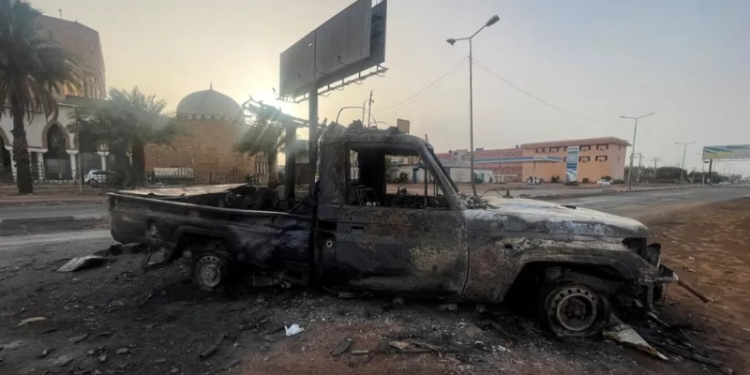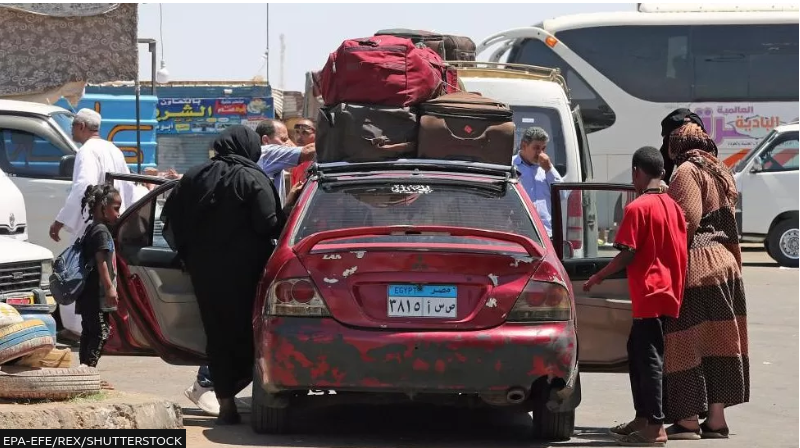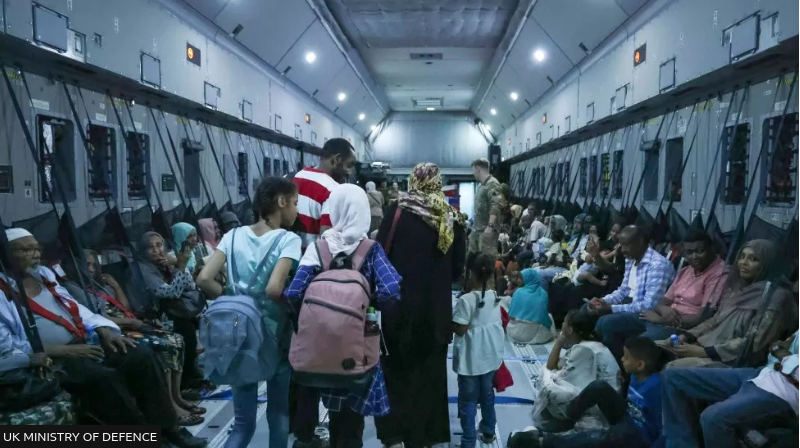In Khartoum, the capital of Sudan, fighting has intensified, shattering the most recent ceasefire meant to enable people to flee to safety.
Sunday, the army announced that it was assaulting the city from all sides with air strikes and heavy artillery in an effort to eliminate its paramilitary adversaries.
The latest ceasefire was scheduled to expire late Sunday. There are still millions of people stranded in the capital, where food is running out.
During the pandemonium, foreign nations have been evacuating their nationals.
Since fighting broke out between the regular army and the Rapid Support Forces (RSF) on April 15, over 500 people have reportedly been slain. However, the number of fatalities and injuries may be much greater.
Army commander Gen. Abdel Fattah al-Burhan and RSF chief Gen. Mohamed Hamdan Dagalo, also known as Hemedti, are vying for authority and are at odds over plans to incorporate the RSF into the army.
Following intensive diplomatic efforts by neighbouring nations, the United States, the United Kingdom, and the United Nations, an agreement to extend a tenuous ceasefire was reached Thursday night. The 72-hour extension, however, did not hold.
In Khartoum, heavy combat had resumed by Saturday evening. The army stated that it had conducted operations against RSF forces north of the city’s central business district.
According to witnesses cited by Reuters, army drones targeted RSF positions near a key oil refinery.
“Once again, we awoke to the sound of fighter jets and anti-aircraft weapons firing in our neighbourhood,” a local resident told AFP on Sunday.
















































